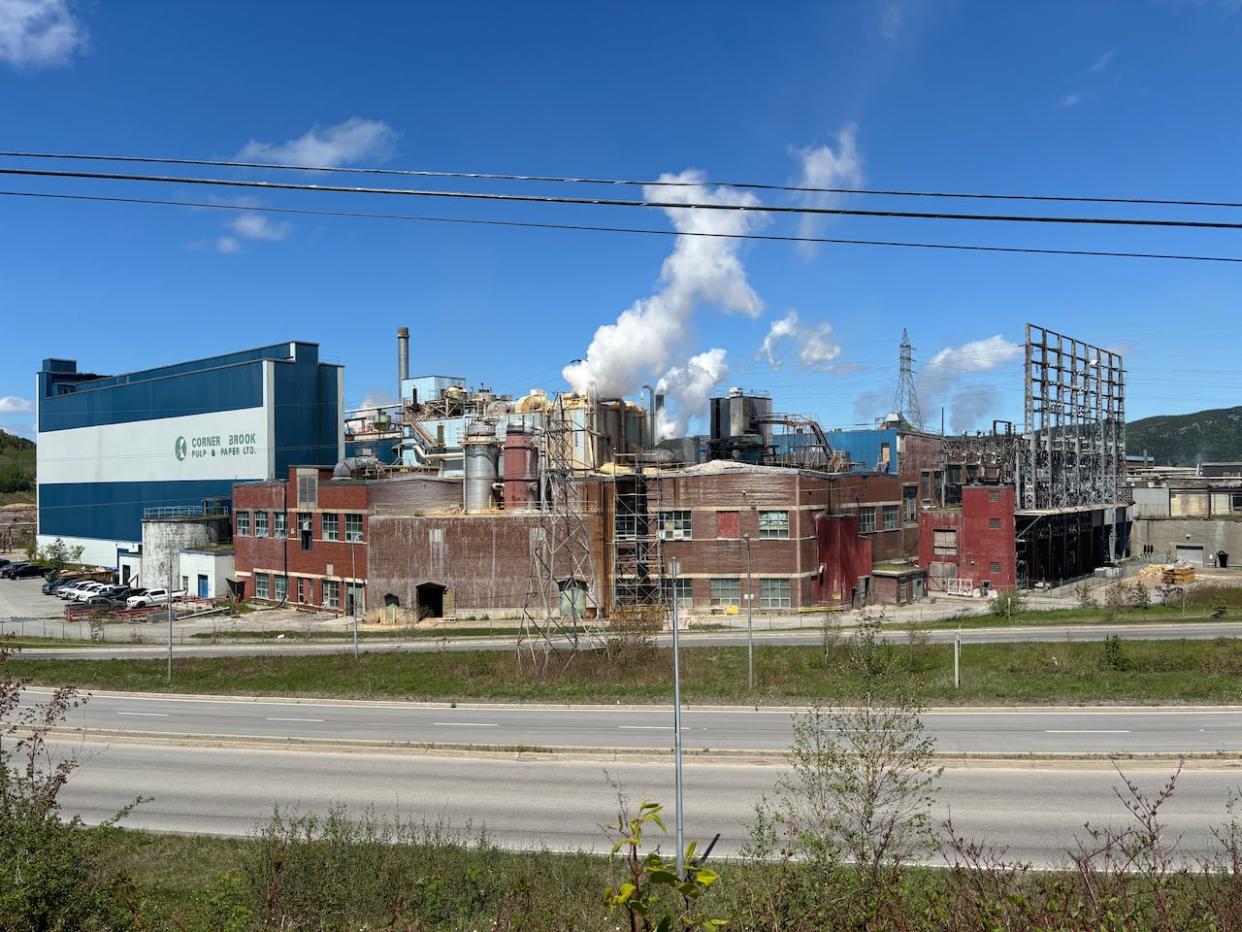Corner Brook council rejects Kruger's plan to cut wood near city water supply


The City of Corner Brook has voted against a proposal by the owners of Corner Brook Pulp and Paper to harvest wood in a protected watershed. (Amy Feehan/CBC)
A bid from Corner Brook Pulp and Paper to harvest wood in a local watershed has hit a brick wall at city council.
The Kruger-owned company had asked for permission to cut wood near the city's water supply. The proposal involved harvesting 330 hectares of forest inside an 11,000-hectare protected lake area, as well as the construction of a 2.75-kilometre access road.
City council rejected the proposal at its meeting on Monday.
"When it comes to drinking water, we're the ones. The buck stops here," said Coun. Pamela Gill, who spoke at length about her concerns at the meeting.
In a subsequent interview with CBC News, she said that while she isn't fully opposed to cutting in the watershed, she didn't feel enough information was given to make a properly informed decision.
"Why wouldn't you ensure that the people that are going to make the ultimate decision on whether this goes forward or backward, or doesn't go anywhere, why wouldn't you make sure you educate them to the absolute best of your ability?" Gill said in an interview. "I think they need to do due diligence. It's not good enough to slap it up on a website."
CBC News asked Kruger for comment. The company declined as it evaluates its next steps.

While Corner Brook Coun. Pamela Gill, left, said she did not have enough information about the proposal, Mayor Jim Parsons said there was sufficient evidence to support the plan. (City of Corner Brook, Colleen Connors/CBC)
Two councillors, Bill Griffin and Mayor Jim Parsons, voted to approve a proposal that already had the support of the city's watershed management committee — which Parsons chairs.
But members of the public and other council members cited concerns, including fears of water contamination, erosion and disrupting the ecosystem.
"In this case there was a lot of public feedback. I think it was 114 [items] was the number that was cited in the literature…a lot of very valid concerns," Parsons told CBC's Newfoundland Morning this week.
"I think that for a lot of councillors, it just wasn't worth any risk."
Other councillors, including Charles Pender, called the watershed committee's management plan, which was developed in 2009, dated given greater knowledge about climate change.
Parsons said the committee has put extra layers of protection in place, saying it had a "great deal of comfort" in recommending the proposal be approved.
"From the committee's perspective, I think this was very much something that happens on a routine basis. Maybe not necessarily every day in our watershed, but it does happen in other watersheds in other areas," he said.
Some councillors said they would have liked to see more information from Kruger, the Montreal-based owners of the mill. Gill recommended having a public information session.
Gill thinks conversations could also go further, including questioning whether work in the watershed is even necessary.
"I'm not saying I support this necessarily, but what if we had a moratorium on a watershed? And no more mineral development, no more, you know, tree cutting. And let the city determine when it's appropriate to go in," she said.
Parsons said comments around the need for an information session concerned him, as he said enough research is widely available thanks to the committee.
"I think selling your idea to the public shouldn't be necessary. I think that, you know, councillors are very intelligent people...They can look at this technical knowledge and they should be able to say 'Well I understand why people are concerned about these things, but this is why it should go ahead," he said.
Download our free CBC News app to sign up for push alerts for CBC Newfoundland and Labrador. Click here to visit our landing page.


